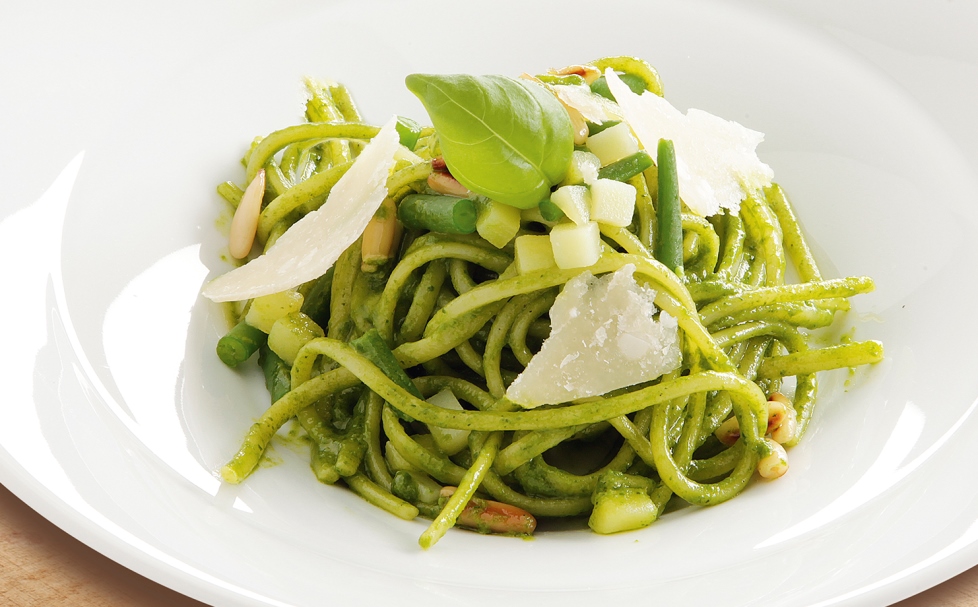After exploring in detail the idea that health starts with our shopping habits for food, we now give some attention to the topic of enjoyment. Why are enjoyment and food an inseparable entity? The answer to this is relatively simple: you won’t want to eat food which doesn’t look appealing or taste good – even if it is healthy. It’s not only appearance which is important – the nose, tongue and mouth are all part of the experience, too! These sensory perceptions ideally lead to an optimal use of the food through the promotion of secretion. High quality spices and fresh herbs reinforce this interplay. This is therefore a significant explanation as to why enjoyment of food is an important prerequisite for health. The key here is to prepare food which is tasty and healthy. The art of cooking shouldn’t be regarded, therefore, as a luxury or superfluous task. These are decisive in whether the food is merely downgraded to something that is ingested or whether it makes an important contribution to pleasure in life. Delicious food in pleasant surroundings is not only enjoyable; at the same time it is also the best contribution to good health. The quality (and never quantity!) is crucial for conscious enjoyment and prevents food consumption from developing into misuse and addiction.
In terms of quality, the issue of whether or not we should be eating convenience products, or “ready meals”, comes quickly to the fore. These products include ready-to-eat dishes such as frozen ready meals, baking mixes, packet soups, instant mash potato, instant sauces, conserves, marinated fish and also fruit yoghurt and ice cream. This is a huge market which is becoming increasingly popular. The success of such products, on the one hand, is due to the fact that a growing number of people lack cooking skills, and, on the other hand, that advertising of these products persuades of their time-saving benefits.
In short, both arguments are a question of attitude to life! In principle, there is nothing wrong with occasionally using well-produced convenience products. A good example is tinned tomatoes, as generally tomatoes end up in tins once well-ripened and are as such available year round. This is not the case with ready-made sauces and ready meals in sauce as they often contain too much salt and sugar: if you’ve tried making a sauce or stock yourself, you will know that it isn’t too time consuming and the result is incomparably more satisfying. Also in terms of price, it is generally more economical to prepare sauces yourself.
You would be right in thinking that this is all well and good for me in my own household but at the hospital where I was, or at my company’s canteen, this message does not yet seem to have been received. The quality of food and its preparation in the catering sector is generally a very big problem. The Munich Tumour Centre has joined forces with experts in order to address this topic constructively from all angles. As this primarily involves the breaking down of out-of-date structures by means of new findings, as well as proving the feasibility of healthy and environmentally sustainable nutrition even on a mass scale, we will need plenty of energy and full commitment to achieve this. But we are convinced that this investment is worth it! As it stands, we can simply advise you to implement the recommendations provided in your private sphere, and get involved with the implementation of these ideas with your own ideas and tips. We look forward to hearing your suggestions which we will be happy to publish on this blog.
And bear in mind that people who adopt an optimistic approach to life and are able to enjoy and take pleasure, even in the little things in life, live more healthily. Epicureans understand how to take pleasure from the seemingly insignificant, and how to gain something unique and special from ordinary daily life.
To explore this topic in more detail we recommend the following books:
“Kann denn Essen Sünde sein?” (Can food be a sin?) by Prof.Dr. Michael Hamm, Goldmann-Verlag (2001, Neuauflage im TB 2011)
“Muss denn Essen Sünde sein?” (Does food have to be a sin?) by Hanni Rützler und Wolfgang Ritter, Brandstätter Verlag (2015)
